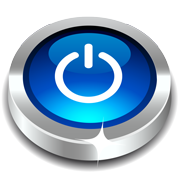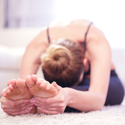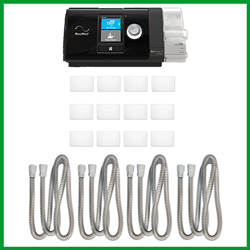Most of us can’t snap our fingers and fall into a deep, restful sleep. Indeed, modern life has made sleep as inconsistent as your WIFI during peak hours – you just keep going in and out. But you don’t have to fret, because there are a number of things you can do not only fall asleep faster, but also stay asleep. If you have obstructive sleep apnea, this may be a little more difficult. However, with a few minor lifestyle adjustments and tweaks, you should be catching those Zzzz’s in no time. Didn’t sleep well last night? – Well, here are nine things you should do today.

1. Power down:
Answering emails, playing video games, reading on your tablet – these things stimulate your brain at a time when it should be calming down. And beyond that, the blue glow that your screen emits has been shown to delay the release of melatonin, a hormone that helps you sleep. If you can’t keep your phone, tablet or laptop out of the bedroom, try installing F.lux, an app that automatically adjusts the brightness and color of your screen as it gets later to reduce the negative effects of your device on your sleep.
2. Stock up on your CPAP supplies:
When your mask breaks or your tube tears, this can disrupt your sleep for days. Keep a back up on hand in case of emergency.In a pinch? Easy Breathe can also send you one ASAP. Just select one-day shipping when you check out to keep sleepless nights to a minimum.
 3. Put away the drink:
3. Put away the drink:
There’s a funny thing about alcohol, though it can help you get to sleep quicker, it can ruin the quality of that sleep by reducing REM sleep – and it’s REM sleep that actually makes you feel rested the next day. So for a better night’s sleep, you should avoid alcohol just like you’d avoid coffee right before bed.
 4. Perfect your CPAP set up:
4. Perfect your CPAP set up:
There are thousands of possible equipment combinations and set ups. You need to find one that works for you. Perfect your CPAP routine and stick to it. Test different options until you find what you like. Do you like your CPAP air warm or cold? Do you want the tube stretch above your bed or do you like wearing mask liners or comfort pads? (Image: Kath Hope http://hope2sleepguide.co.uk/)
 5. Don’t ask too much of your bed:
5. Don’t ask too much of your bed:
You should only be sleeping in your bed – anything else can make sleep more difficult. No more eating, working or watching TV in bed. Your bed should be a place reserved for relaxation and recharging.
 6. Get into a routine:
6. Get into a routine:
Don’t confuse your body – sleeping in on the weekends may sound like a great way to catch up on sleep, but it actually sets you up for being more tired. More than extra sleep, your body needs a routine – so pick times to go to sleep and to wake up that will work for you on weekdays and weekends and then stick to them.
 7. Exercise, anytime:
7. Exercise, anytime:
Exercise boosts melatonin (the sleep hormone) and though it used to be assumed that exercise right before bed could diminish sleep quality, recent studies suggest that isn’t the case. Morning, noon, night – whenever you can find the time to exercise, it’s the right time for a good night’s sleep.
 8. Stretch or meditate before bed:
8. Stretch or meditate before bed:
Sometimes meditating can allow you to clear the brain and reduce your stress. Oftentimes, stress is the number one killer of a good night of sleep. If you are worried about your job, your life, your family – you don’t want to go to bed just yet. Indeed, you want to find a quiet place to take a few deep breaths and clear the static. Once your mind is completely clear, you can get in bed and fall asleep more soundly.
 9. Take a nap:
9. Take a nap:
Take a nap to make up for lost sleep. The best time is in the early afternoon and it should be limited to 30 minutes or less. That way you wake up refreshed instead of groggy. You might consider keeping your old CPAP or a compact CPAP next to your favorite recliner or by the couch so you can get the most restful nap possible.










